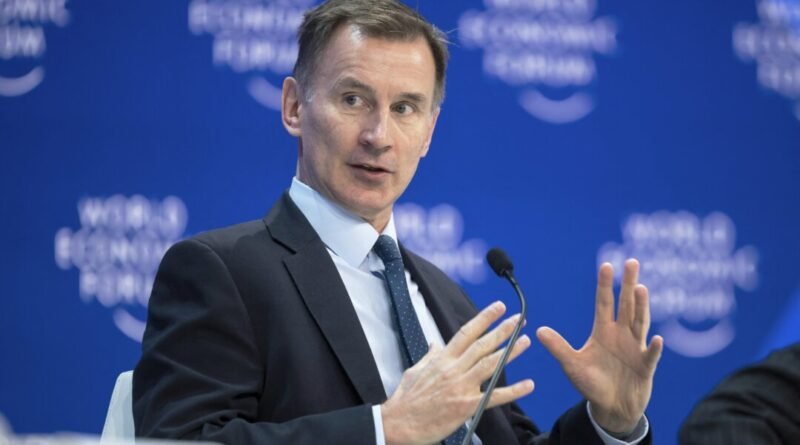Jeremy Hunt Prepared to Reduce Taxes and Invest in Stimulating Growth
The chancellor announced that Britain has successfully overcome challenges and the economy is on the rise, with plans to eventually eliminate National Insurance.
Jeremy Hunt stated on Friday that he is prepared to reduce taxes and invest in growth following the recent growth of the UK’s gross domestic product (GDP) in February.
He mentioned that the country has tackled the hurdles related to inflation and is now progressing positively on the economic front.
According to the Office for National Statistics (ONS), the GDP in February grew by 0.1 percent, building on the 0.3 percent growth seen in January, signaling a path of recovery from a technical recession.
In an article for the Daily Express, Mr. Hunt emphasized that “the economy is bouncing back” based on the recent data indicating growth in January and February.” He highlighted the reduction in inflation from over 11 percent to 3.4 percent, set to decrease further to 2 percent next month as per predictions from economists at the Bank of England.
The chancellor expressed that the Conservative Party’s objective is to eventually eliminate National Insurance contributions (NICs) and address the issue of double taxation on work.
He added, “As inflation continues to decrease, the constraints on growth will be removed, leading to sustainable growth that benefits individuals financially and secures resources for public services.”
Defending his decision to delay tax cuts, the chancellor mentioned that the efforts to bring down inflation will prove to be worthwhile.
The increase in inflation from 0.4 percent in February 2021 to a peak of 11.1 percent in October 2022 was due to various factors, including pent-up demand during COVID-19 lockdowns and geopolitical events like Russia’s invasion of Ukraine.
Mr. Hunt emphasized the importance of reducing the tax burden and promoting growth, but only after inflation is under control.
The UK entered a technical recession in the latter half of last year, with consecutive GDP contractions, presenting a challenge for Prime Minister Rishi Sunak to assure voters of the economy’s stability before an upcoming election.
Data released on Friday indicated a strong start to 2024 for the UK economy, with a growth rate of 0.2 percent in February, the highest since August, nullifying the possibility of a recession even if GDP declines significantly in March.
These figures are expected to support the Bank of England’s cautious approach towards potential interest rate adjustments, with the economy likely to exceed the central bank’s first-quarter growth estimate of 0.1 percent.
In February, CPI inflation was reported at 3.4 percent, projected to decrease to the target level of 2 percent in the second quarter of this year, followed by slight increases in the subsequent quarters.
Regarding Friday’s GDP figures, the chancellor stated it as a positive turning point for the economy, while the Labour Party argued that Britain’s growth has suffered under the Conservative government’s leadership for 14 years.
Chris Summers and Reuters contributed to this report.





